Iraq Situation Report: November 27-30, 2014
November 30, 2014 - Institute for the Study of War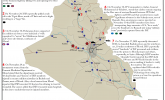
The Iraqi Security Forces (ISF) and Iraqi Shi'a militias are capitalizing on their recent gains in Diyala province.

The Iraqi Security Forces (ISF) and Iraqi Shi'a militias are capitalizing on their recent gains in Diyala province.
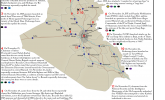
Fighting in northern Iraq has accelerated. The Islamic State of Iraq and al-Sham (ISIS) is seeking to regain the momentum after suffering major territorial loses and setbacks recently in the strategic town of Baiji in Salah ad-Din province and the towns of Jalula and Sadia in Diyala province.
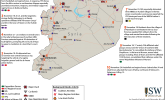
JN and rebel forces attacked regime and Hezbollah forces in the heavily-fortified Shi’a towns of Nubl and Zahra northwest of Aleppo City.
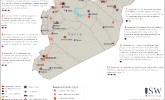
JN and rebel forces attacked regime and Hezbollah forces in the heavily-fortified Shi’a towns of Nubl and Zahra northwest of Aleppo City.

Throughout September and October 2014, the Islamic State of Iraq and al-Sham (ISIS) moved to consolidate its control of terrain in al-Anbar province, closing the gap in its Euphrates control between Haditha and Ramadi.
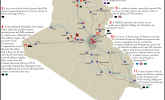
The Iraqi Kurdish Peshmerga are establishing a security zone around Jalula in northeastern Diyala, northeastern Iraq.
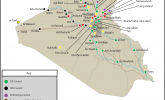
Changes for November 24, 2014 Update: On November 23, Iraqi Kurdish Peshmerga, Iraqi Security Forces (ISF), and Popular Mobilization Units (PMUs) that include Iraqi Shi’a militias cleared the Islamic State of Iraq and al-Sham from the areas of Jalula and Sadia in Diyala province in northeastern Iraq.
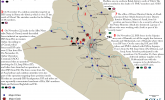
The fight against the Islamic State of Iraq and al-Sham (ISIS) continues to yield mixed results.
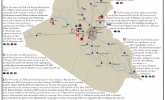
The provincial capital of Anbar Province, Ramadi, has been heavily contested by ISIS since the beginning of the Anbar operations and has been under the threat of falling to ISIS for nearly a year.
American strategy in Iraq and Syria continues to suffer from a fatal flaw. President Obama explicitly ordered that it focus only on “degrading” and “destroying” the Islamic State to the exclusion of any other American national security interests and regardless of the likelihood of the long-term success of any such effort undertaken in isolation. As a result, the strategy has achieved some limited successes against the Islamic State, but those isolated successes are coming at the expense of other important American security concerns. The current approach, in p